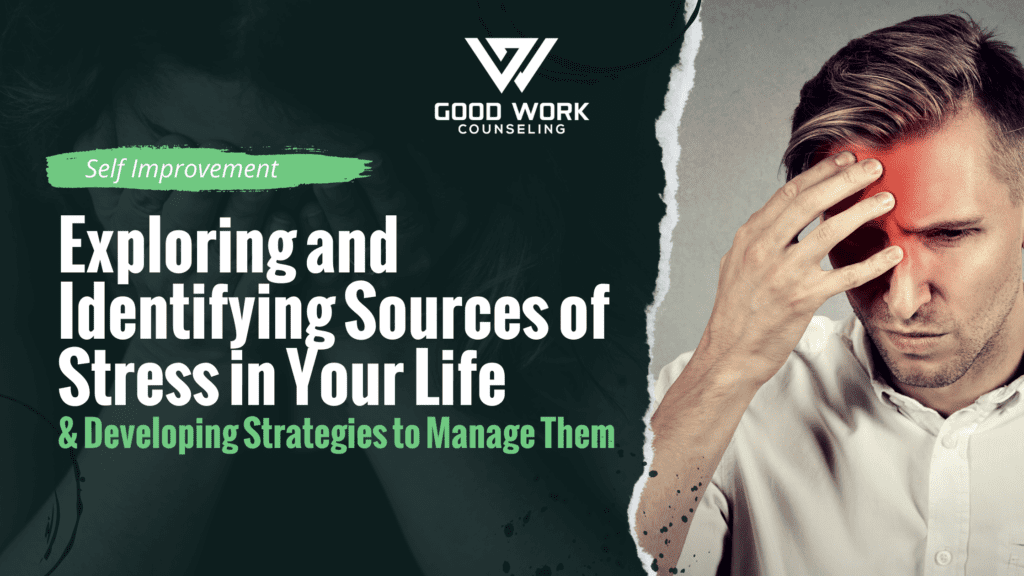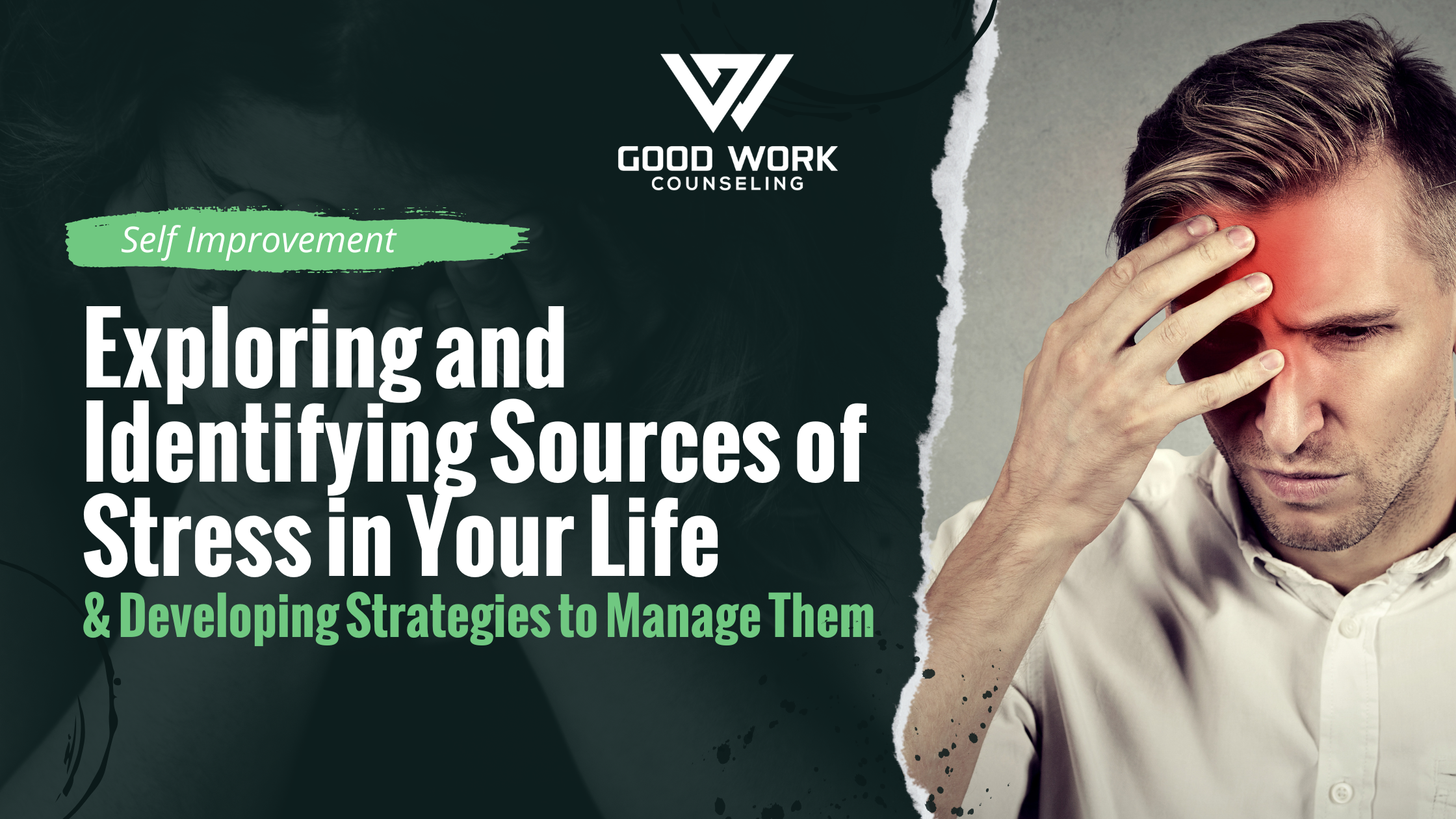Exploring and Identifying Sources of Stress in Your Life: Develop Strategies to Manage Them
If you’re feeling overwhelmed or stressed, you’re certainly not alone. Stress is a very real problem for people of all ages and backgrounds, but it’s important to pay attention to the sources of your stress so that you can develop strategies to manage them. Counselor D.A. Myers with Good Work Counseling in Tulsa, Oklahoma has some helpful advice on how to identify sources of stress in your life, and how to develop strategies to help you manage it.
What are the Most Common Sources of Stress?
Stress can come from many different sources. It could be caused by external factors like work deadlines, an unstable work/life balance, financial pressures, or a challenging family situation. It could also be triggered by internal factors like worries about self-esteem or dealing with difficult emotions like depression or anxiety. No matter the source, it’s important to familiarize yourself with the common causes so that you can start addressing these issues before they become unmanageable.
How Do I Identify My Sources of Stress?
The first step in managing your stress is identifying the underlying causes. To get started, try keeping a journal and writing down when you feel anxious or overwhelmed. Utilize a scaling system, 1-10 to gauge the level of stress you are experiencing. Then try brainstorming some possible root causes for those feelings – oftentimes these underlying issues are more complex than we realize at first glance! Once you’ve identified potential sources of stress in your life, it’s time to take action and start developing strategies to better manage them.
What Strategies Can Help Manage Stress?
Once you have identified your sources of stress, it’s time to start developing ways to manage them – because unfortunately not all stressors can be eliminated entirely! Here are a few strategies that may help:
- Find ways to relieve tension throughout the day: Take breaks for walks or spend a few minutes doing deep breathing exercises; schedule regular relaxation activities like yoga or meditation; go for a massage or get involved in creative pursuits like painting or playing music; find outlets for expressing emotion through talking with friends and family members or trying out new hobbies that interest you; find humor in everyday situations; take time out just for yourself every day – whether it’s reading a book, watching a movie, or having an afternoon nap!
- Build resilience: Building resilience involves strengthening our inner resources so that we can cope better with adversity – this might include learning skills such as assertiveness and problem-solving techniques; cultivating positive coping beliefs (e.g., “I can handle this”); investing time in positive relationships with friends/family/colleagues who support us; improving our physical fitness level with daily exercise, etc.
- Engage in meaningful activities: Finding activities that have purpose and direction will help distract ourselves away from stressful thoughts, while also giving structure and focus outside of our main stresses. Examples might include volunteering for charity work; helping vulnerable members of our community through being active on social media platforms; networking with other helpful professionals etc… Allowing ourselves moments each day where we do something that gives us pleasure is also key – whether it be playing sports; watching movies/series/documentaries etc…
- Seek Professional Support: If none of these strategies seem feasible because your situation feels too overwhelming then seeking professional support from a counselor or psychologist may be beneficial – if only used temporarily while exploring different solutions.





